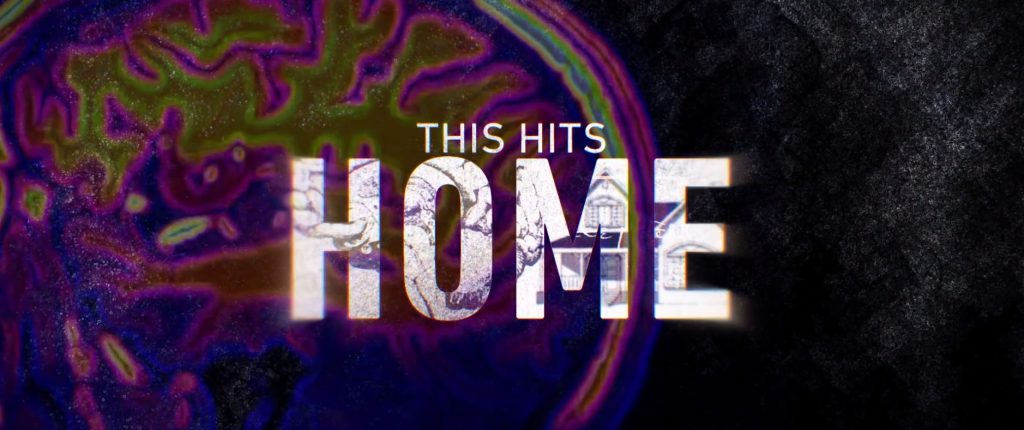Services and Resources
This Hits Home Screenings
Speaking and Panels
DV-Head Trauma Private Consultation
DV-TBI/CTE Training and Education
We provide private consultation for individuals
We provide private consultation for families
Private consultation is available in Spanish or English
We provide training for first responders, education institutes, and service providers including neighborhood groups, churches, community clinics, hospitals, government, social welfare, legal, and others.
Available in Spanish or English
Resources
Where to Get Help: TBI and CTE
Formal Support
Brain Injury Resources
Although there are organizations and groups that are focused on providing help and support for contact sports and veterans with TBI, head injury, and potential CTE, there are few specifically focused on domestic violence victims, thrivers, and survivors. When contacting these groups, you might find yourself advocating for yourself or your loved one. These are some groups that can offer support for domestic violence victims, survivors, and thrivers living with TBI, brain trauma, or potential CTE, their families, caregivers, and loved ones:
Brain Injury Association of America – National Brain Injury Information, call 1-800-444-6443, or Find a Brain Injury Association in your state. Read Personal Stories from people affected by TBIs.
National Association of State Head Injury Administrators – Get information on programs in your state
United States Brain Injury Alliance – Find a Brain Injury Alliance in your state
Military Health System’s Traumatic Brain Injury Center of Excellence – Get patient and family resources
National Institute of Child Health and Human Development (NICHD): Resources related to TBI (PDF 48 KB).
Administration for Community Living (ACL)
This agency, within HHS, helps older Americans and people with disabilities get access to community supports.
American Academy of Physical Medicine and Rehabilitation (AAPM&R)
AAPM&R is a national society of specialists in physical medicine and rehabilitation.
American Occupational Therapy Association, Inc. (AOTA)
AOTA offers resources for practitioners, educators, students, caregivers, and patients.
American Speech-Language-Hearing Association (ASHA)
ASHA offers resources for the public on hearing, balance, speech, language, and swallowing.
Brain Trauma Foundation
The foundation offers educational resources, including videos and FAQs, on concussion and other forms of TBI.
Centers for Disease Control and Prevention (CDC)
HEADS UP is a brain injury awareness campaign that provides videos, concussion training courses for parents and coaches, and other educational materials.
Traumatic Brain Injury & Concussion has information on causes and effects of TBI and ways to prevent TBI.
Center for Parent Information and Resources
The center’s information on TBI includes a webinar on school planning and educational strategies following TBI and tips for parents and teachers
(en español
).
National Library of Medicine
The MedlinePlus page Traumatic Brain Injury provides basic information on TBI and links to more resources.
National Center on Health, Physical Activity, and Disability (NCHPAD)
The center maintains a directory of programs accessible to people with disabilities.
Office of Special Education and Rehabilitative Services
This office, within the U.S. Department of Education, provides information about special education services for children with disabilities, including disabilities from TBI.
National Resource Center for TBI
The resource center provides articles and FAQs for people with TBI and their families.
U.S. Social Security Administration
This agency offers information related to disabilities, including TBI, and disability benefits.
U.S. Department of Veterans Affairs (VA)
The VA provides information about TBI through the Veterans Health Library.
Please note: Links to organizations and information included on this page do not indicate endorsement from Pánfila Domestic Violence HOPE Foundation.
Domestic Violence Brain Injury Resources
United States
Nevada
Safe Living Space provides DV-TBI resources as well as brain injury research, education, and advocacy. To learn more about their services or to contact them go to https://www.safelivingspace.org/
New York
Volunteers of America, Greater New York. They are focused on screening domestic violence survivors in shelters in the Greater New Work area. They are in partnership with Safe Living Space, in Nevada, to screen individuals entering their domestic violence programs for possible brain injury. To learn more about their program or to contact them go to https://www.voa-gny.org/services/addressing-brain-injury-in-domestic-violence-survivors/
Connecticut
Trinity College – Pioneering the study of brain injuries experienced by survivors of domestic violence, the ReMIND Lab at Trinity College brings attention to the effects of domestic abuse that are invisible to the eye. The ReMIND Lab focuses on providing feedback on any possible brain injury, resources, and care to women in the Hartford area, who are the participants of its current study. Charles A. Dana Professor of Psychology and Neuroscience Sarah A. Raskin, PhD, and her student researchers diagnose participants and provide them with proper care and resources. If you want further information and/or want to be part of this study, you can contact raskinlab@trincoll.edu. To learn more about ReMIND Lab you can go to https://commons.trincoll.edu/raskin/
Virginia
Brain Injury Association of Virginia – Domestic Violence and Traumatic Brain Injury can provide you with resources if you suspect you or your loved one is suffering from DV-TBI and live in the state of Virginia. To learn more about their services or to contact them go to https://www.biav.net/dv-tbi-link/
Arizona
Brain Injury Center at Banner – University Medical Center Phoenix is located in Arizona. They provide services for primarily professional athletes and other individuals with brain injuries including female victims and survivors of domestic violence. To learn more about their services or to contact them go to https://www.bannerhealth.com/institutes/rehabilitation-institute/brain-injury-center#:~:text=At%20the%20Brain%20Injury%20Center,the%20injury%20and%20maximizing%20independence.
Ohio
Ohio Domestic Violence Network – The Center on Partner-Inflicted Brain Injury provides resources for DV-TBI. To learn more about their services or to contact them go https://www.odvn.org/brain-injury/ or at https://www.odvn.org/
International
Australia
SYNAPSE Australia’s Brain Injury Organisation. They provide services for individuals and families impacted by domestic violence-traumatic brain injury. To learn more about their services or to contact them go to https://synapse.org.au/creating-real-change/why-our-work-matters/domestic-violence/
Canada
Survivors of Abuse and Brain Injury through Research (SOAR), based in the Okanagan Region of British Columbia, Canada. They provide support to DV-TBI female victims and survivors.
Chronic Traumatic Encephalopathy Information
Boston University’s Chronic Traumatic Encephalopathy (CTE) Center conducts high-impact, innovative research on chronic traumatic encephalopathy and other long-term consequences of repetitive brain trauma in athletes, military personnel, first responders, victims of physical violence, and others affected by head trauma. The mission of the CTE Center is to conduct state-of-the-art research on CTE, including its neuropathology and pathogenesis, clinical presentation, genetics and other risk factors, biomarkers, methods of detection during life, and methods of prevention and treatment. They are an excellent resource to learn the latest brain science on CTE.
Concussion Legacy Foundation (CLF)– CLF is based in the United States with chapters in Australia, Canada, and the United Kingdom. It primarily supports athletes, veterans, and others affected by concussions and CTE. It aims to promote smarter sports and safer athletes through education and innovation, and End CTE through prevention and research. Although they do not serve victims or survivors of domestic violence -head injury, they provide excellent information about CTE.
Informal Network Support
We acknowledge disenfranchised communities affected by domestic violence, trauma brain injury, and potential CTE that have historically been systemically isolated from formal systems of care due to discrimination, racism, and other social injustice and intersectionality issues. Hence, if you seek help from your clergy, pastor, or another religious organization, your local community confidant, curandero (healer), or a trusted friend, please let them know about your head injury so that they can help you seek needed resources and services. You can point them to our website in case they are unaware of the DV-TBI and DV-CTE pandemic. You can also contact us as we are experienced in serving minority communities impacted by domestic violence, head injury, and its health consequences such as CTE. We are here to support you.
Safety Planning Tips
- For immediate emergencies, please call or text 911
- You can call the National Domestic Violence Hotline for help developing your safety plan tailored to your particular situation 1-800-799-7233 or 1-800-787-3224 (TTY).
- Informal Systems of Support. Immigrants, minority women, and other disenfranchised communities are distrustful of formal support networks and instead turn to their informal network for help. Please ensure you consult with someone you trust such as a friend, acquaintance, spiritual guide, or counselor that can help you develop a safety plan. It is vital that this trusted individual have experience developing safety plans or knows where to seek information to assist you with it.
- Undocumented – Fear of Deportation. Do not let this deter you from leaving your violent relationship. Many immigrants are fearful of admitting that are DV victims because they believe they will be removed (deported) from the US if they report the crime. U.S. law provides several protections for legal and undocumented immigrants who are DV victims and victims of other crimes. There are specific protections for victims of DV and other specific crimes. Please read the Immigration Options for Victims of Crime brochure carefully to get informed about your rights as a DV victims. It is available in English, Arabic, Bengali, Chinese (Simplified), French, Hindi, Portuguese, Russian, Somali, Spanish, and Urdu. You can also get more information by visiting the Immigration Options for Victims of Crime website.
- Safety. It is critical that you and everyone who is leaving and involved in the domestic violent environment or situation are safe.
- Important Documents. Gather and collect important documents such as ID, birth certificates, SSI cards, working permits, marriage license, divorce or custody orders, orders of protection, naturalization certificate, passport, and child/ren medical and school records.
- Plan Where You Are Going to Stay Once You Leave. If you have children, make sure you can take your children. Most DV shelters in the US do not allow older children in their facilities. Make sure you get age limit details.
- The Family Pet. If you have a pet, make sure that you can take your pet with you where you plan to go. Most DV shelters do not allow them in their facilities.
- Guns. If there is a gun in the house, consult with your local police department to get information about how to best manage safe removal of the gun.
- Overnight Bag. Have an overnight bag ready if you need to leave quickly and know where it is located.
- There are other strategies you can consider so it is important to consult with a an experienced individual and/or consult with National Domestic Violence Hotline at 1-800-799-7233 or 1-800-787-3224 (TTY) to help you develop a safety plan for your particular situation.
Please note: Links to organizations and information included on this page do not indicate endorsement from Pánfila Domestic Violence HOPE Foundation.


